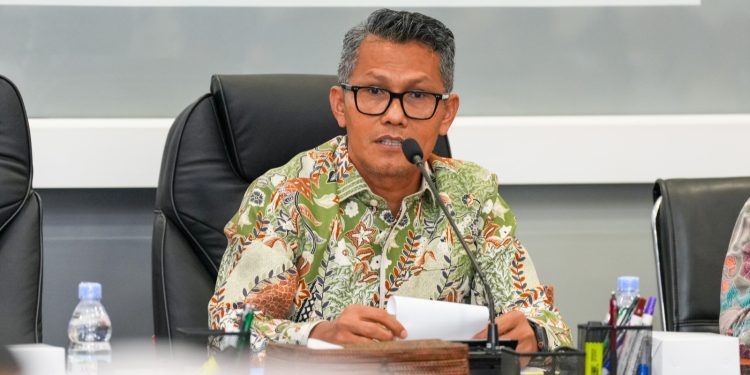Jakarta, Indonesia Sentinel — Indonesia’s Ministry of Industry has warned of potential mass layoffs in the country’s textile sector, saying as many as 40,000 workers could lose their jobs if a proposed 45% anti-dumping duty on raw materials from China is imposed.
The warning came after the Indonesian Anti-Dumping Committee (KADI) submitted a proposal to apply anti-dumping tariffs on certain filament yarn products, a key input for the textile industry.
“This would be a national tragedy,” ministry spokesperson Febri Hendri Antoni Arief said in a statement on Saturday, August 23, 2025. “Job losses in the upstream sector could still be mitigated by boosting domestic raw material absorption, but if applied broadly, the impact would be severe.”
He noted that the textile sector continued to expand by more than 4% in the first and second quarters of 2025, calling it “a positive achievement that must be preserved.”
Febri also criticized the low compliance of some members of the Indonesian Filament and Fiber Producers Association (APSyFI) in reporting industry activity. Only 15 companies submitted data through the National Industrial Information System (SIINas), while five others failed to do so.
At the same time, he said some APSyFI members had sharply increased imports of filament yarn, up 239% in a year, from 14.07 million kilograms in 2024 to 47.88 million kilograms in 2025.
“On one hand, they demand protection. On the other, they act as major importers. This clearly contradicts the spirit of industrial self-reliance,” he said.
Read Also:
Indonesia Seizes Rp112 Billion worth of Illegal Secondhand Clothing Imports in Bandung
The government, Febri added, has already extended significant protection and fiscal support to upstream textile producers, including anti-dumping duties on polyester staple fiber (PSF) in place since 2010 and valid through 2027, as well as duties on spin drawn yarn (SDY) until 2025, safeguard tariffs on synthetic fiber yarn until 2026, and safeguard tariffs on fabric until 2027.
“In practice, APSyFI members have been enjoying double benefits, tariff protection and import facilities. Unfortunately, this has not been matched by new investments or technology upgrades,” Febri said.
The ministry stressed that tariff protection and import policies must be balanced fairly across upstream, intermediate, and downstream industries. Export-oriented downstream textile producers have already received various incentives to compete in global markets, while the domestic market is directed toward supporting import substitution.
(Raidi/Agung)


























